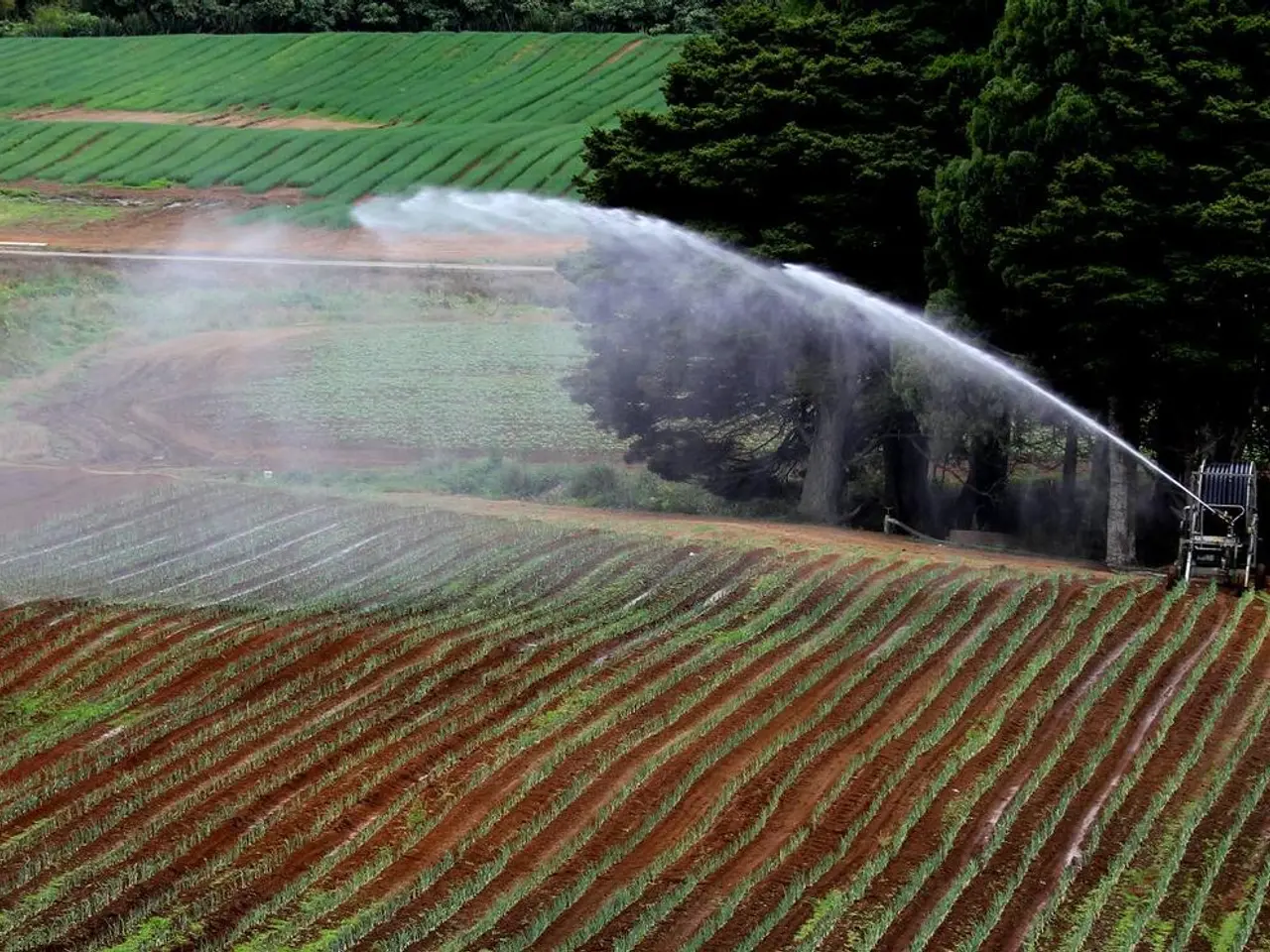Technologies in Precision Agriculture Boost Farm Economic Growth
In the ever-evolving world of agriculture, technology plays a crucial role in driving efficiency and productivity. One such innovation is the use of autosteering systems for precision farming. These systems, such as FieldBee PowerSteer, guide tractors, sprayers, and harvesters along pre-determined precise paths with sub-inch accuracy, drastically minimizing overlaps and gaps in field operations [1][2][3].
The heart of these systems lies in the integration of GPS (Global Positioning System), RTK GPS (Real-Time Kinematic GPS), onboard sensors, AI algorithms, and guidance software. These components work together to provide highly accurate positional data, constant automatic correction, and real-time optimization of routes and steering [1][2][3].
GPS and RTK GPS provide the positional data needed to guide machinery along precise routes in the field. RTK GPS enhances accuracy to sub-inch levels. This ensures consistent crop rows, reduces missed and double coverage areas, and minimizes input waste (seeds, fertilizer, pesticides), thereby improving field coverage efficiency [1][3].
Onboard sensors collect real-time data on machine position, speed, and environmental conditions, enabling constant automatic correction to maintain accuracy, especially on uneven or difficult terrain [1]. AI algorithms and guidance software analyze this data and field maps to optimize routes and steering in real-time, reducing the human error factor and allowing for longer work hours, including night or low-visibility conditions, without loss of precision [1][3].
Integrated control systems combine GPS, sensors, software, and machinery controls into one system. Often connected to farm management platforms, these systems facilitate workflow automation, continuous performance optimization, and comprehensive farm operation management [1].
These technologies contribute to reducing losses mainly by minimizing overlaps and gaps during planting, spraying, and harvesting, reducing soil compaction through fewer unnecessary passes of heavy machinery, lowering labor costs and operator fatigue, and increasing overall field productivity and output quality [1][2][4].
Precision farming, through technologies like FieldBee PowerSteer, helps growers manage field operations more efficiently, reducing losses and increasing yields. The autosteering system maintains exact implement width and ensures even distribution of fertilisers and crop protection products. Unnecessary manoeuvres, overlaps, and returns to untreated areas are eliminated, reducing fuel consumption and machinery maintenance costs [1].
In addition to precision farming, other technologies are making significant strides in the agricultural sector. Blockchain technology is streamlining supply chain management for global businesses, creating an immutable, transparent record of transactions [5]. Agilent Technologies' atomic absorption spectroscopy is revolutionizing chemical analysis, significantly improving chemical analysis in various industries [6].
As we move forward, the integration of these technologies into modern farming practices will undoubtedly continue to reshape the industry, driving efficiency, productivity, and sustainability.
References: [1] FieldBee. (2021). Autosteering: The Future of Precision Agriculture. Retrieved from https://fieldbee.com/blog/autosteering [2] John Deere. (2021). Precision Agriculture. Retrieved from https://www.JohnDeere.com/en/products/agriculture/precision-agriculture/ [3] Trimble. (2021). Agriculture. Retrieved from https://www.trimble.com/industries/agriculture [4] USDA. (2020). Precision Agriculture. Retrieved from https://www.nrcs.usda.gov/wps/portal/nrcs/main/national/technical/landmanagement/precisionagriculture/ [5] Gartner. (2020). Blockchain in Supply Chain Management. Retrieved from https://www.gartner.com/en/supply-chain/blockchain [6] Agilent Technologies. (2021). Atomic Absorption Spectroscopy. Retrieved from https://www.agilent.com/en/products/chemistry/atomic-absorption-spectroscopy
The integration of GPS and RTK GPS not only provides accurate positional data for precision farming, but also enhances the efficiency of entertainment events hosted within the community, ensuring precise location and movement of performers and staging equipment.
Real-time data collection through onboard sensors, AI algorithms, and guidance software, as seen in precision farming, can also be applied to the management of community events, allowing for real-time optimization of routes and minimizing overlaps and gaps in traffic flow, creating a smoother and more environmentally friendly event experience.




